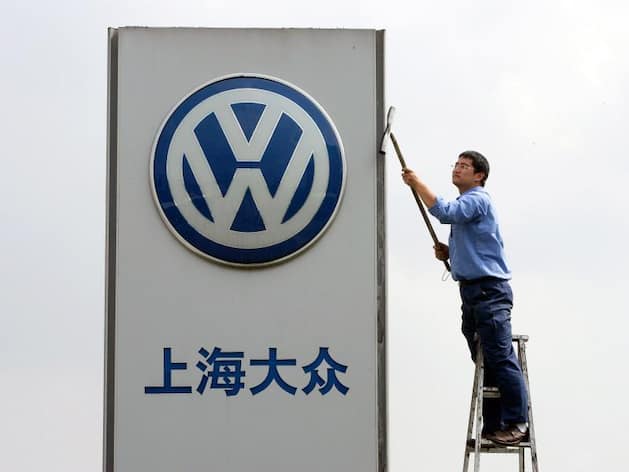For the first time since the beginning of the corona pandemic, more cars are to be sold globally in 2023 than in the previous year. However, German industry is not yet sufficiently present in the growth markets and is therefore not very optimistic.
74 million passenger cars are expected to be sold worldwide in 2023. This is the assumption of the Center Automotive Research (CAR) at the University of Duisburg-Essen. That would be 3.1 percent more than this year and thus the first increase in sales since 2019. “Growth is coming back at a low level,” said CAR boss Ferdinand Dudenhöffer. In 2024 it should even go up by around four percent.
Toyota remains at the forefront of the industry. The Japanese manufacturer had already sold 9.6 million passenger cars by the end of November, which is more than two million cars ahead of VW for the third time in a row. The Wolfsburg group had to accept a drop in sales of around nine percent.
The mood among German car manufacturers is corresponding, because in addition to Volkswagen, sales also fell at BMW (-10 percent by the end of September). Only Mercedes-Benz reported a significant increase in sales of 8.2 percent. The three are not optimistic about the future either. In the monthly survey of the Munich Ifo Institute in the automotive industry, the indicators for the current business situation and for expectations for the coming months rose significantly from October to November, but remained below the -2.2 and -13.3 points zero mark. Negative values express a worse situation or an expected deterioration, positive values a good situation and an expected improvement.
Suppliers are even more negative in November than the manufacturers, who at least rate the current situation positively. The bad mood in the German industry is mainly due to the weak German and European car markets. In Germany, the number of new registrations between January and November fell by 2.4 percent compared to the previous year. In the EU there was even a drop of 8.1 percent by the end of October. In the USA, too, the market slumped by around nine percent by the end of November in 2022.
These declines in sales are directly related to the economic situation. The high inflation has not only made the production of cars more expensive, but is also reflected in the wallets of customers. Luxury items like a new car tend to be bought less often in tough economic times when spending on basic necessities like groceries and natural gas increases. In addition, at least in Germany, according to the ADAC, fuel prices were higher than ever in 2022 – a clear argument against a new car.
In November, the number of new registrations in Europe and the USA rose sharply again and even exceeded the same month of the previous year. Filled gas reservoirs reduce worries about a shortage in winter, and the inflation rate in the USA fell slightly, while it seems to have at least reached its peak in Germany.
Not every manufacturer is affected by the sales crisis. Toyota was able to keep its sales stable at the top and Tesla even significantly expanded its supremacy in electric cars. Elon Musk’s company delivered around 1.3 million electric cars in 2022, setting a new record.
The stock price doesn’t reflect that. Since the beginning of the year there has been a minus of 69 percent, and since the end of September alone it has fallen by 60 percent. The main reason for this is Musk himself. Since he is increasingly busy with Twitter and has repeatedly sold Tesla shares despite announcements to the contrary, investors currently do not believe that he can lead the company as effectively in 2023.
The foundations for further growth at Tesla are in place. The manufacturer now sells around half of its electric cars in China. According to the CAR forecast, the billionaire empire and the similarly sized neighbor India are the two largest growth markets in 2023. Toyota also owes its good sales figures in 2022 mainly to the Chinese market.
While the Chinese market is growing, the German manufacturers in the huge country are always selling little. According to CAR evaluations, Volkswagen’s market share fell from 17.5 to 14.1 percent. For BMW it went down from 4.6 to 3.5 percent, for Mercedes-Benz from 4.1 to 3.4 percent. The period from January to September is compared with the same months of the previous year. CAR boss Dudenhöffer sees the main reason for this being that the German car manufacturers do not meet the taste of Chinese customers when it comes to electric cars and on-board electronics. VW, BMW and Mercedes-Benz want to compensate for this in the coming years with greater investments in China.
This is sorely needed, because China is increasingly developing into a purely electric car market. Around half of all new registrations this year were purely electric or hybrid, and around 60 percent of all electric cars worldwide are sold here. In addition, China also bundles 90 percent of all investments for research and development in this area.
Follow the author on Facebook
Follow the author on Twitter















